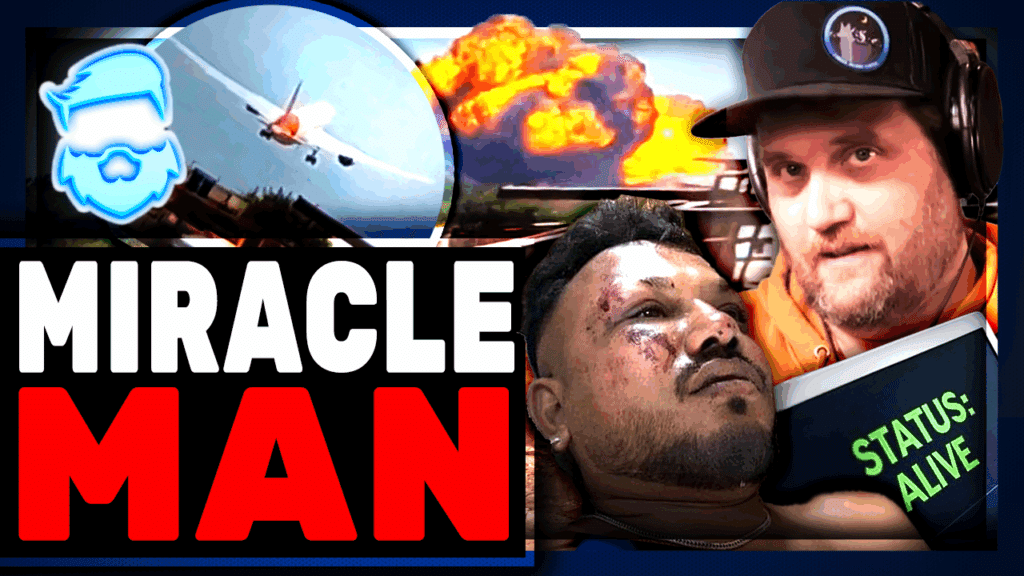Israel Unleashes “Operation Rising Lion” – Devastating Strikes Decimate Iran, Trump Takes Bold Credit
Recent overnight strikes have brought a significant shift to the Middle East, with Israel executing what appears to be a wildly effective and on-target assault against Iran. The precision and overwhelming impact of these operations suggest a near-complete removal of Iran’s ability to counterattack, raising questions as to whether such capabilities ever truly existed. We are optimistic that this situation will not escalate further.
Donald J. Trump is certainly not distancing himself from the credit for these actions. Trump stated that he “gave Iran chance after chance to make a deal,” warning them that “it would be much worse than anything they knew anticipated or were told”. He emphasized that “the United States makes the best and most lethal military equipment in the world by far, and Israel has a lot of it with much more to come”. Trump further asserted that certain “Iranian hardliners” who spoke bravely “didn’t know what was about to happen,” and ominously, “they’re all dead now”.
Indeed, Trump told CNN’s Dana Bash that the Iranian negotiators he had been dealing with are now deceased, specifically “the hardliners”. This development strongly suggests a “regime change in the making”. Trump’s support for these strikes is evident. While some might have thought Trump was trying to distance the U.S. from direct involvement, we now know that Trump “always knew the date for the Israel attack on Iran” and supported it, even speaking with Netanyahu before the assault.
The Mossad’s Covert Campaign: “Operation Rising Lion”
The sheer effectiveness of Israel’s campaign, dubbed “Operation Rising Lion,” highlights a sophisticated and multi-pronged approach that saw Israel “absolutely wreck them”. Israeli spies covertly infiltrated Iran, smuggling missiles and secretly hiding explosive drones deep inside the country. A key tactic involved tricking top Iranian military leaders, including air force commanders, into gathering for a meeting before they were targeted and “wiped out”.
The operation unfolded in three distinct phases on early Friday:
- Initial strikes targeted Iran’s air defenses: Commando units deployed precision-guided weapons near surface-to-air missile defenses and engaged Iranian systems, effectively taking out their surface-to-air missiles (SAMs).
- Follow-up attacks: Strike systems were set up and technology mounted on vehicles, then launched at Iranian air defense systems.
- Final blow to missile launchers: Explosive-laden drones were activated, flying to a base outside Tehran to destroy surface-to-air missile launchers that posed a threat to Israeli strategic and civilian targets.
This sabotage allowed Israeli air strikes to destroy radars, other surface-to-air defenses, and crucial nuclear facilities, including Iran’s main nuclear enrichment plant at Natanz, where black smoke was seen rising. Roughly 200 aircraft were involved in the initial attack on approximately 100 targets. Reports indicate not a single casualty from the Israelis carrying out these operations. The precision of these attacks is remarkable; we’ve seen images where entire apartment buildings remain intact, yet a single apartment within is completely obliterated, with power still on in adjacent units.
Iranian Leadership Decimated
The strikes took out several high-ranking Iranian officials, including General Hassin Salomy, head of Iran’s Revolutionary Guard; Muhammad Begari, chief of the country’s military; the head of Iran’s emergency command; and the head of the Revolutionary Guard’s aerospace force. This significant loss of leadership will undoubtedly impact Iran’s command and control structure.
Regional Implications and U.S. Stance
Iran has swiftly called this barrage of strikes a “declaration of war,” with Supreme Leader Ayatollah Ali warning of “severe punishment”. However, as of now, there has been no significant counter-action from Iran, largely due to their diminished capabilities. Slow-moving drones sent by Iran were easily “picked out of the sky”.
While Israel acted decisively, the question of U.S. involvement, though not direct boots on the ground, remains. We certainly provide the weapons; “it’s our weapons” that are being used. There’s also the claim that the U.S. “helped lull Iran into belief no attack was imminent,” which could be seen as complicity.
Looking ahead, the potential for escalation is a grave concern. Many of us, including hardline anti-war people who voted for Trump, are deeply critical of any move that could draw America into this conflict. There was speculation that Russia and China might rush to support Iran, but that has not materialized. It’s unlikely Russia desires another proxy war with the U.S., and China’s primary interest appears to be maintaining the flow of oil. We hope this does not escalate, as it seems inevitable that both Israel and the United States will be blamed by those in the region.













